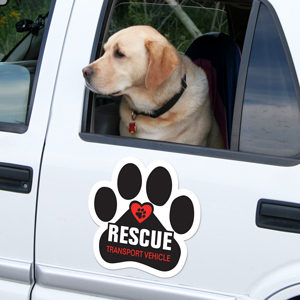By Dr. Beth Leermakers
Yesterday, I drove 200 miles to save a dog. Three other volunteer drivers helped transport my new foster dog Louie, a sweet black lab, on his 300-mile journey from his south Texas shelter up to Dallas. Louie was supposed to fly here in a private plane flown by a Pilots ’N Paws volunteer, but the weather didn’t cooperate. After spending two weeks with me, Louie will continue his journey up to his rescue group in Chicago. Every day, shelter staff members, transport volunteers and foster parents work tirelessly to move dogs and cats out of over-crowded shelters to safety.

petfinder.com to identify nearby shelters and rescue groups.
Photo courtesy of AnimalInk.com
I recently attended the Best Friends national conference in Dallas. Best Friends Animal Society is leading the national movement toward No Kill 2025 — ending the killing of healthy cats and dogs in shelters due to lack of homes. Texas kills more animals (> 114,000 in 2018) than any other state. A whopping 661,000 cats and dogs entered Texas shelters last year. In 2018, Dallas Animal Services (DAS) took in 34,866 animals — the fourth largest animal intake in the country. Exactly 28,150 animals (80.7 percent) were saved. The DAS staff and volunteers have worked very hard to increase the number of animals saved.
Shelters and communities that achieve a 90 percent or higher save rate for all cats and dogs are designated as no-kill. To see where other North Texas communities stand, visit bestfriends.org/2025-goal to view the community dashboard and see how you can help. Finding Dallas in the sea of dots on the map is challenging, so click on another North Texas community and then use the drop-down menu to locate Dallas or other towns.
The resounding message throughout the conference was that community involvement is essential to find every animal a loving home. Shelter staff and rescue volunteers cannot save all the animals without help. With this in mind, DAS launched Dallas90, a community outreach campaign to engage the community in their life-saving mission.
Want to help save lives but can’t adopt? Here’s how you can make a difference:
Be a responsible pet parent. Spay and neuter your cats and dogs. Vaccinate and provide preventative veterinary care (including heartworm prevention). Microchip your animals (this is now required in Dallas).
Foster a cat or dog. This past weekend, DAS was looking for people to foster 100 medium and large dogs for two weeks, until the Clear the Shelter event on 8/17. If two weeks sounds like too long, try the Dog Daycation Program, in which people take a shelter dog out in the community for a day trip (Thursdays through Sundays). Or exercise a high-energy dog via the D90 Dog Runners program.
By taking a dog out of the shelter for a run or a day, you’re helping to make that dog more adoptable while providing exposure that might just help your new fur buddy find his forever homes. You must attend a volunteer orientation to foster an animal. Visit dallascityhall.com/departments/dallas-animal-services/Pages/Fostering.aspx. Fort Worth Animal Care & Control is having an Out and About field trip event (day trip or overnight slumber party) for dogs on August 10 and 11. Email [email protected] for more information.
Volunteer at a shelter or rescue group. Walk a dog or socialize a cat. Transport animals. Help at offsite adoption events. Photograph the animals. Create social media posts. Plan fundraising events.
Advocate. Spread the word by sharing social media posts. Educate your friends and neighbors about responsible pet ownership. Together we can save lives!
Donate. Shelters and rescue groups often rely on donations to provide veterinary care, enrichment toys and, in some cases, even food and cat litter. Ask what the shelter or rescue group needs. When I asked one shelter manager, she told me they needed “cat gloves.” I was thinking “grooming gloves,” but they wanted protective gloves to keep them from losing a finger when they were bitten by a feral cat. Sometimes their needs are so basic (paper towels, bleach, cleaning supplies) that it’s humbling. The staff at most shelters work incredibly hard and often purchase supplies out of their own pocket. They are so grateful for support.
If you want to help and aren’t sure where to start, visit petfinder.com to identify nearby shelters and rescue groups. Or email me ([email protected]), and I’ll share many options.
Saving lives takes a village. I hope you’ll join our North Texas village!
